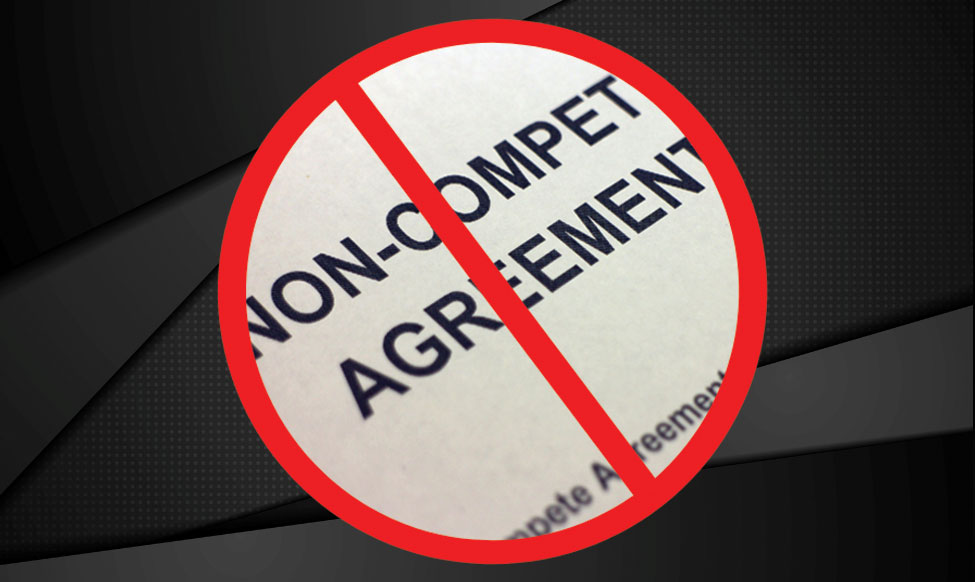Non-compete agreements could soon be a thing of the past in New York. This month, the New York State Senate and then Assembly passed legislation banning provisions in employment contracts that restrict where the employee may work after their employment ends. The bill, A1278B/S3100A,[1] is now heading to Governor Hochul’s desk for signature. If signed into law, it would go into effect on the 30th day after it becomes law and would prospectively apply to contracts entered into or modified on or after that date. However, if Governor Hochul does not sign the bill or proposes any amendments to it, it may not become law until next year when the New York Legislature reconvenes.
What the Proposed Law Bans
Under the proposed law, a non-compete agreement is defined as “any agreement, or clause contained in any agreement, between an employer and a covered individual that prohibits or restricts such covered individual from obtaining employment, after the conclusion of employment with the employer included as a party to the agreement.”[2] The proposed legislation would prohibit employers from seeking, requiring, demanding, or accepting non-compete agreements with any “covered individual” regardless of their position and/or salary. The bill would not prohibit employment contracts that restrict “covered individuals” from disclosing trade secrets or confidential information, or from soliciting the employer’s clients, so long as the agreement “does not otherwise restrict competition in violation of this section.”[3]
Moreover, a covered individual is defined as “any other person who, whether or not employed under a contract of employment, performs services for another person on such terms and conditions that they are, in relation to that other person, in a position of economic dependence on, and under an obligation to perform duties for, that other person.”[4] The language suggests that the restrictions could apply to both employees and independent contractors.
The proposed law does raise some questions for business owners. While it does allow prohibitions on the non-solicitation of an employer’s clients that the covered individual learned about during employment, it is silent on whether agreements may contain prohibitions on the non-solicitation of employees. Additionally, there is no evidence that the bill is intended to restrict the use of non-compete provisions in a sale-of-business transaction.
Private Enforcement of Non-Competes
In addition to the ban on non-compete agreements with covered individuals, the bill also would provide a covered individual with a private cause of action[5] with a two-year statute of limitations that runs from the later of “(i) when the prohibited non-compete agreement was signed; (ii) when the covered individual learns of the prohibited non-compete agreement; (iii) when the employment or contractual relationship is terminated; or (iv) when the employer takes any step to enforce the non-compete agreement.”[6]
Additionally, courts would be granted the jurisdiction to void any unlawful non-compete agreement, enjoin the conduct of any person/employer, award lost compensation damages and reasonable attorneys’ fees, and order the payment of liquidated damages (which would be required under the current language of the proposed law). However, such award of liquidated damages would be capped at $10,000.
Distinctions from the Proposed Ban on Non-Competes Published by the Federal Trade Commission
New York is following the trend of other states, as well as the Federal Trade Commission (the “FTC”), in adopting restrictions on non-compete agreements. However, there are a few noteworthy distinctions between this bill and the proposed ban on non-competes published by the FTC earlier this year. Unlike the FTC’s proposed rule, the potential New York law:
- has no sale-of-business exception, which generally applies to mergers and acquisitions,
- would not require rescission of existing non-competes, and
- would not require employers to provide covered individuals with notice that their non-compete agreements have been voided.
Please contact us with any questions.
Thank you to Keith O’Brien for his research and writing assistance.
[1] https://www.nysenate.gov/legislation/bills/2023/A1278/amendment/B
[2] New York Senate Bill S3100A § 191-d(1)(a).
[3] New York Senate Bill S3100A § 191-d(5).
[4] New York Senate Bill S3100A § 191-d(1)(b).
[5] In this case, a private cause of action allows a private plaintiff to bring a legal action based directly on a statute in order to recover damages.
[6] New York Senate Bill S3100A § 191-d(4).

